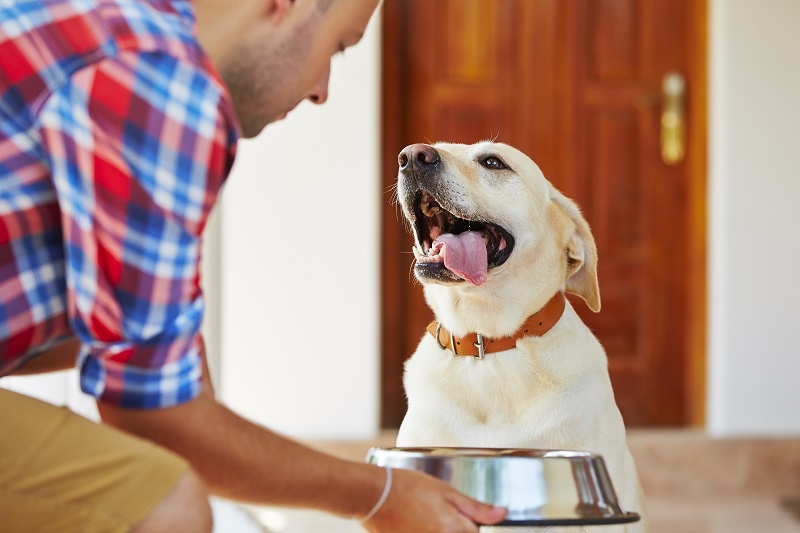Estimated reading time: 8 minutes
For all of us, the need to keep both our loved ones and ourselves safe is paramount; however, these recent changes to society may not only prevent us from socialising but also limit our ability to afford all the luxuries to which we have been accustomed.
Few, if any, of us saw the Covid-19 crisis coming down the line or that we might find ourselves looking anxiously at the state of our bank balances for what might well be months of disruption. For pet owners, financial stability can be a real concern. The responsibility to care for our pets’ welfare and wellbeing should not be dependent upon our income stream but, inevitably, reduced income creates challenges for pet care.
No one wants to have to surrender a much-loved pet because of financial reasons; so here are some ways in which we can continue to look after our beloved pets on a budget. Who knows, one or two of these changes in our own behaviour might be sensible to maintain when our personal financial stability is restored at the end of this crisis.

Being restricted to working from home means that we can tackle more of these basics ourselves.
- Doggy day care is now something that many of us can, and may now need to, do ourselves. Playing with our pets is not only good for them but also good for us. It builds the relationship between us, it aids training and it can reduce stress: although some dogs will need to be gently led through the early stages of a very different daily routine to avoid the change of routine becoming stressful in itself.
- We may be used to taking our dog to the groomer but tackling this ourselves can save a significant amount of money – especially in breeds which need regular attention. Of course, it’s important to exercise caution and not to risk doing anything that might injure your pet —scissors and clippers need careful handling with a dog that may not wish to stand still while you experiment – but try to do as much as possible yourself without getting too close to the skin.
- No one expects you to have the elegant skills of the groomer, but keeping fur and longer hair under control will help your dog to remain cool when the weather becomes warmer and will also help to keep the eyes and ears free from matted hair and possible infection. If the end result is not a work of art, don’t worry! This crisis will end, and you can then have your results tidied up by an expert. We’re all going to have to learn how to keep our own hair trim so there’s little real difference in this situation.
Remember prevention is always better than cure, so taking the time to attend to a healthcare regimen will pay off handsomely in reducing the need to pay unnecessary visits to the vet. The following things are all easy to do at home:
Coat Health and Dental Care
Brush your dog’s fur and (if possible) teeth regularly.
Ear Health
Check your dog’s ears weekly so that you can clean them as needed. Avoid reaching deep into the ear and concentrate on keeping the outer ear clean.
Paw Health
Check your pet’s paws weekly. As with ears and eyes, grass seeds can cause real problems if not removed. If you are now unable to ask your vet to show you how to trim nails, there are several videos available on-line to help you see how to do this but remember that little and more often is a far safer route than being over enthusiastic.
Tick Removal
Check regularly for fleas, ticks and other parasites. Tick removal is quite easy: you can get a simple tool from your vet, from pet shops or on-line to remove ticks safely without causing distress to your pet. Ticks carry other diseases and should not be allowed to remain on your pet.
Vaccination
Make sure that your pet remains vaccinated. Any significant pause in cover will necessitate starting the whole vaccination course all over again which adds additional expense as well as exposing your animal unnecessarily to infections that can be serious and potentially fatal.
Parasite Control
With climate change comes a change in the spread and distribution of disease and parasites. As both disease and parasites change and adapt over time, keeping protection up to date is a basic responsibility for any pet owner. The internet is full of stories about the necessity for vaccination, but most modern vaccines are combinations of vaccines for different diseases and continuing immunity requires annual boosters to maintain safe cover. If in any doubt, consult your veterinary surgeon by telephone and they will explain the various diseases against which your dog needs protection.
Your vet will have access to the most up-to-date protection available and parasite control which is available in supermarkets and pet shops may not always be the most up-to-date cover available. If finances are short, make sure you keep your pet vaccinated by your vet and, if necessary, you might be able to save money by buying anti-parasitic products to treat ticks, worms and fleas elsewhere. Always check with your vet practice first: you may be pleasantly surprised at the price of their total healthcare packages.
Veterinary Support
Having reduced financial means might encourage you to delay seeking veterinary advice for a problem but widespread experience suggests that this is usually a false economy. When veterinary advice is needed, it is far better to explain to your vet that you are experiencing some cash flow issues – many vets themselves will be too – and to ask for the various options available to treat your pet. Your vet might not initially volunteer a cheaper approach, which might mean a longer or more complicated resolution of an issue, but they will always understand that a more basic approach is better than none. In the UK, there are also charities that offer veterinary services at greatly reduced costs such as PDSA and Blue Cross.
Neutering
If you have not had your female dog neutered, the cost of that operation will be far lower than the costs of looking after an unwanted litter. This is something that you should discuss with your veterinary practice, as there are times in your dog’s life when this is not always advisable and, where necessary, the charity practices may be prepared to help with this at a reduced cost.
Insurance
Some people choose to save up a rainy-day fund to cover veterinary emergencies and, if so, it is important to maintain that — no matter how difficult that may be.
Others have their pets insured against unexpected veterinary costs but if premium renewals prove too expensive, it is better to contact the insurer directly and ask to discuss the available options rather than to let it lapse. In many cases, it might prove difficult or even impossible to renew insurance cover after a period where cover had lapsed and a discussion with the insurer to investigate reduced cover and lower premiums together with lower financial limits or other exclusions is always a better option, although it may not always be possible to reinstate cover for those exclusions at a later date.
Feeding
One of the biggest factors in pet care is the cost of dog food, but this really is an area where saving money on quality is not advisable. Feeding a good quality food, according to your dog’s life stage, is both a pleasure and a responsibility and whatever anyone may tell you, quality does matter. Whilst a food that is tailored for your dog’s jaw size or specialist breed is a luxury that is nice to have but rarely necessary; however, what is necessary is to provide a properly balanced, consistent nutritional intake that is appropriate for your dog’s size, age and activity level. A food that is proven to be easily digested with maximum nutritional benefit is important, as is staying with something that you know suits your dogs and addresses their specific needs in terms of skin or digestive sensitivity and individual energy demands that may also have an effect on weight control. If you have established a routine with a quality food that works for you and your dog it is advisable to stay with it if you possibly can. You can often save money by buying larger sizes or buying in bulk, so long as you have the ability to store the food properly and safely; it may be worth discussing with your retailer (or directly with the food’s manufacturer) what savings may be available. Some products may be cheaper online but be sure to check on delivery charges as these can significantly affect the final price.
Caution: be aware that changing a dog’s food should be done gradually to avoid digestive upset but, wherever possible, maintaining a routine with a good quality food that your dog will eat and appears to suit him, is better than risking substantial change and, on occasion, avoidable veterinary fees.


